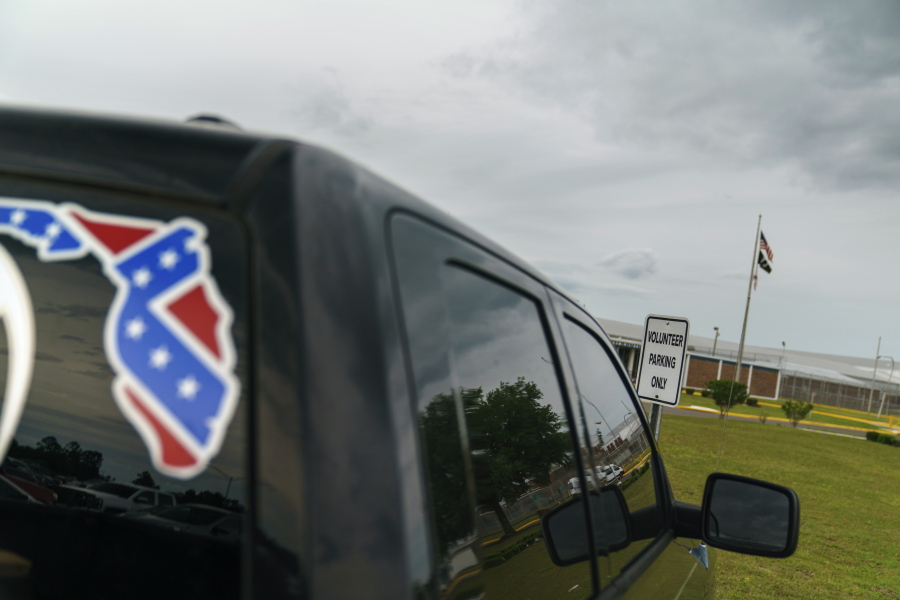In June, three Florida prison guards who boasted of being white supremacists beat, pepper sprayed and used a stun gun on an inmate who screamed “I can’t breathe!” at a prison near the Alabama border, according to a fellow inmate who reported it to the state.
The next day, the officers at Jackson Correctional Institution did it again to another inmate, the report filed with the Florida Department of Corrections’ Office of Inspector General alleged.
“If you notice these two incidents were people of color. They (the guards) let it be known they are white supremacist,” the inmate Jamaal Reynolds wrote.
Both incidents occurred in view of cameras, he said. Reynolds’ neatly printed letter included the exact times and locations, and named the officers and inmates. It’s the type of specific information that would have made it easier for officials to determine if the reports were legitimate. But the inspector general’s office did not investigate, corrections spokeswoman Molly Best said. Best did not provide further explanation, and the department hasn’t responded to The Associated Press’ August public records requests.
Pervasive problem
Florida prison guards can openly tout associations with white supremacist groups to intimidate inmates and Black colleagues and go unpunished, according to allegations in public documents and interviews with a dozen inmates and current and former employees. Corrections officials regularly receive reports about guards’ membership in the Ku Klux Klan and criminal gangs, according to former prison inspectors and current and former officers.
Still, few such cases are thoroughly investigated by state prison inspectors; many are downplayed by officers charged with policing their own, or discarded as too complicated to pursue.
“I’ve visited more than 50 (prison) facilities and have seen that this is a pervasive problem that is not going away,” said Democratic Florida state Rep. Dianne Hart. “Those who work in our prisons don’t seem to fear people knowing that they’re white supremacists.”
The people AP talked to describe Florida’s prison system as chronically understaffed and nearly out of control. In 2017, three current and former guards who were Ku Klux Klan members were convicted after the FBI caught them planning a Black former inmate’s murder.
This summer, one guard allowed members of a white supremacist inmate group to meet openly inside a Florida prison. A Black officer happened upon the meeting and reported it, they told The AP. The officer said their report about it went nowhere, and the guard who allowed it was not punished.
The officer spoke on the condition of anonymity because they were not cleared to discuss prison business.
Officers who want to blow the whistle on colleagues are often ostracized and labeled a “snitch,” according to current and former officers.
Mark Caruso, a former sergeant with Florida corrections who was twice fired and reinstated after blowing the whistle on fellow guards, said senior officers-in-charge have the power to censor allegations of corrupt behavior. This keeps reports inside prison walls.
Caruso worked at three prisons in Florida and reported inmate beatings and officer misconduct multiple times. He was fired after reporting on a colleague at the first prison where he worked as a sergeant, he said.
In 2019, at his third new prison, he was greeted with signs on an employee bulletin board where his name had been crossed out and “SNITCH” scrawled instead, according to testimony at a union grievance hearing.
Despite the intimidation, Caruso continued reporting illegal activity.



